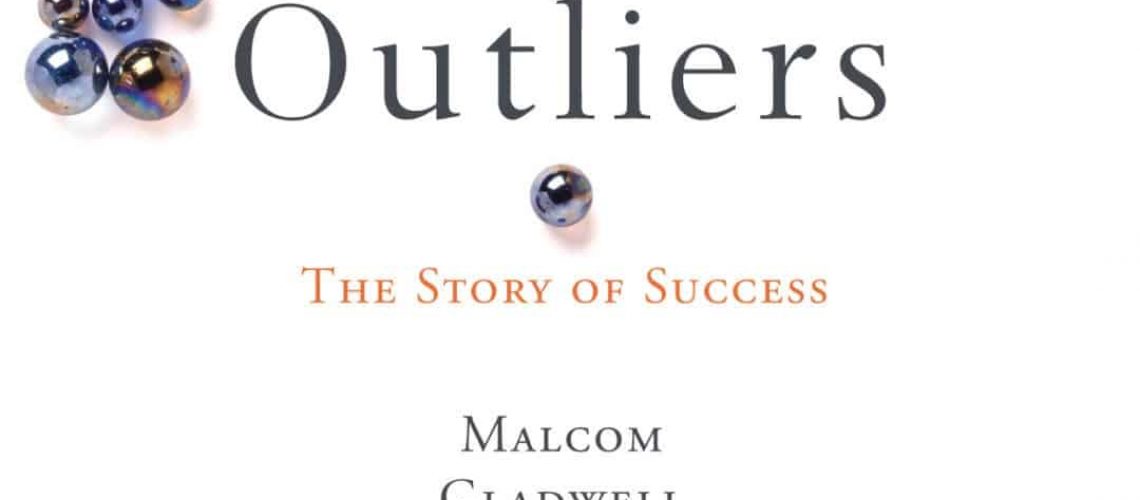Practice isn't the thing you do once you're good. It's the thing you do that makes you good.
Malcolm Gladwell takes us on an intellectual journey through the world of “outliers”—the best and the brightest, the most famous and the most successful. He asks the question: what makes high-achievers different?
His answer is that we pay too much attention to what successful people are like, and too little attention to where they are from: that is, their culture, their family, their generation, and the idiosyncratic experiences of their upbringing.
Along the way he explains the secrets of software billionaires, what it takes to be a great soccer player, why Asians are good at math, and what made the Beatles the greatest rock band.
Outliers: The Story of Success Book Review & Best Ideas
FIGHT MEDIOCRITY & Practical Psychology
Key Takeaways
1. 10,000 Hour Rule the principle holds that 10,000 hours of “deliberate practice” are needed to become world-class in any field.
- TEACHER = 4,000 hours
- GOOD = 8,000 hours
- WORLD CLASS = 10,000 hours This is seen everywhere else too (chess players / fiction writers / figure skaters) (Motzart sucked at first).
- Whenever you start something, don’t expect to be an expert at it within the first 10, 20 or 50 hours. You have to put in the hours and work really hard at creating your craft.
- The Beatles performed live in Hamburg, Germany over 1,200 times from 1960 to 1964. WAY more than 10k hours. Biography writer said “So by the time they returned to England from Hamburg, Germany, ‘they sounded like no one else. It was the making of them.’
- “There is a lot of confusion about the 10,000 rule that I talk about in Outliers. It doesn’t apply to sports. And practice isn’t a SUFFICIENT condition for success. I could play chess for 100 years and I’ll never be a grandmaster. The point is simply that natural ability requires a huge investment of time in order to be made manifest. Unfortunately, sometimes complex ideas get oversimplified in translation.” -Malcom Gladwell
- ONE THING Success goes to those who master THE ONE THING. What are you going to master? Pick and choose that one thing that you will put your 10,000 hours into.
2. Deliberate Practice As long as you’re good enough, deliberate practice will set you apart. NOT just 10k hours of practice. DELIBERATE practice. Not just sitting and messing around, but time where you are solely focusing on getting better at your craft, and if you do that, that is what’s going to set you apart.
- Track Your Progress “What get’s managed get’s measured” Need tools to track progress, see results and get motivated. Tangible skills (coding, writing, sales etc) Intangible skills (relationship skills., personal dev, self growth) The improvements you see over time is motivating. Success breeds success.
3. Not How Good You Are – How Good You Want To Be Talent is overrated. Most of the time, what gets labeled as talent is hours and hours of practice you don’t see. Bill gates spent 1,500 hours in first 7 months learning code. Next 7 years 7 days a week was put into coding. “DARK YEARS” He said he never took a day off for 10 whole years.
- Keep pushing past the point when things start to become challenging.
4. Effects We Can’t See The Matthew Effect is the phenomenon where “the rich get richer and the poor get poorer” is dubbed “accumulative advantage” by Gladwell. This is a main idea to Gladwell’s theory of what produces successful individuals and he begins with the example of outstanding young Canadian hockey players. The reason is relative age and a confusion of ability with maturity.
The idea that the reason so many elite athletes are born in the early months of the year is the result of the very large effect that 10 months difference in age can have on young children’s ability to play a sport. The role of chance or luck by being born at a specific time could boost the odds of becoming an elite athlete.
“It’s not enough to ask what successful people are like. It is only by asking where they are from that we can unravel the logic behind who succeeds and who doesn’t”


